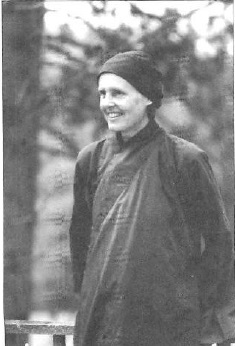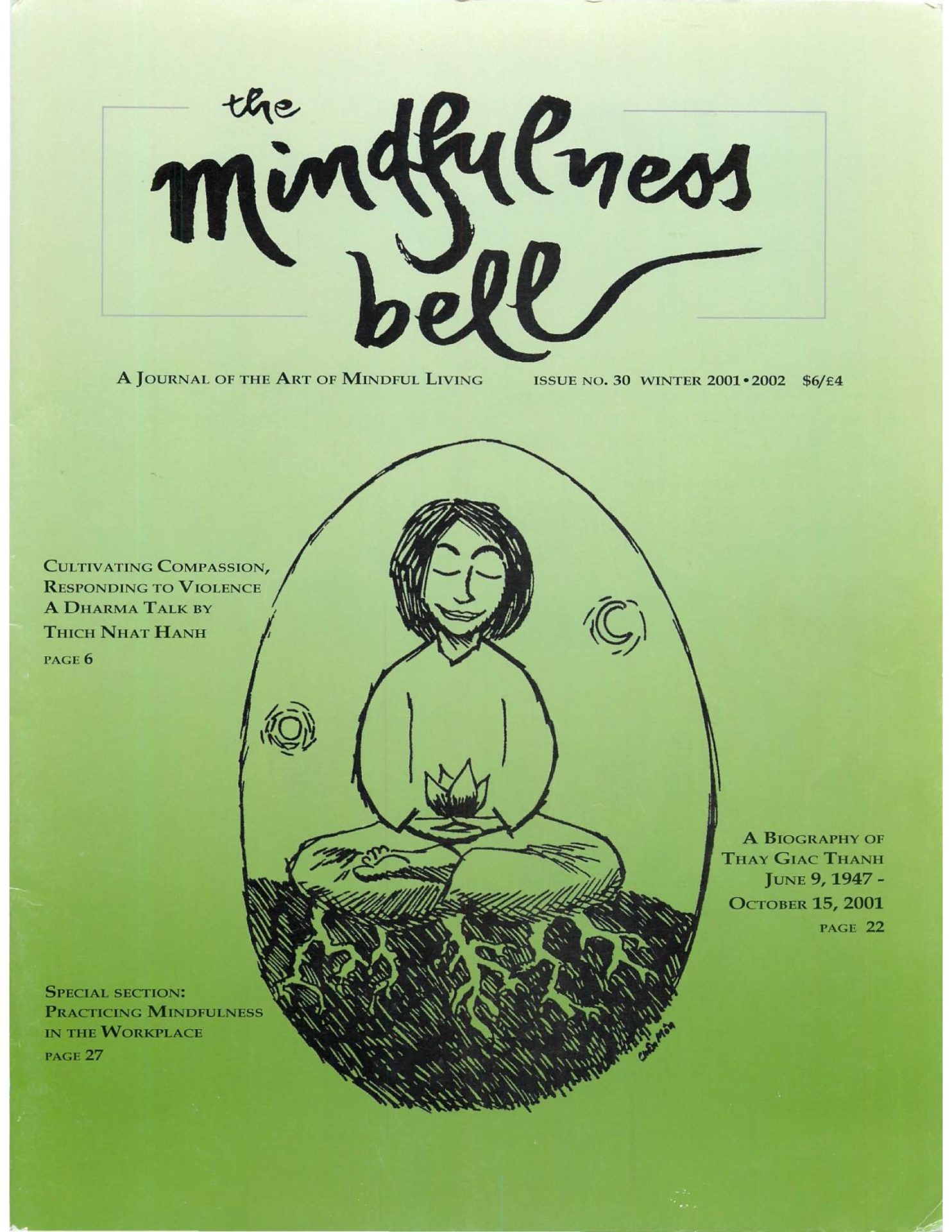Translated by Sister Annabel Laity
The Son’s Flesh Sutra
(Puttamamsa Sutta) Samyutta Nikaya II, 97.
The discourse was heard at Savatthi.
The Buddha began speaking.
“Monks, there are four kinds of nourishment which maintain living beings and make possible the coming to be of living beings.
“What are the four
“There is the nourishment which we take by the mouth. It is edible food and can be course or fine.
Translated by Sister Annabel Laity
The Son's Flesh Sutra
(Puttamamsa Sutta) Samyutta Nikaya II, 97.
The discourse was heard at Savatthi.
The Buddha began speaking.
"Monks, there are four kinds of nourishment which maintain living beings and make possible the coming to be of living beings.
"What are the four
"There is the nourishment which we take by the mouth. It is edible food and can be course or fine. Secondly, there is the nourishment of sense impressions. Thirdly there is nourishment of volition or desire and fourthly there is nourishment of consciousness.
"How could we describe edible food?
"It is like this. Suppose two parents with their only child were to set out on a journey through the desert with a small amount of provisions. Their only son whom they take with them is very dear to them. On their journey they finish what provisions they have taken with them and the are completely exhausted by hunger. It seems that they will not complete their journey out of the desert alive.
"So they come to this conclusion: 'What little food we has is exhausted and our difficult journey has not yet come to an end. Why do we not kill our only son who is so dear to us and when the flesh is dry we can salt it and eat it? Thus we shall have the strength to make our way out of the desert and all of us will not die.'
"Thus it was, monks, that the parents killed their only son who was so dear to them. They ate the dried flesh seasoned with salt and so managed to accomplish their journey, but when they had eaten the flesh they beat their chests and cried: 'Where is our only son, our dear son?'
"What do you think, monks? Was it for amusement or enjoyment that they took this food? Was it out of indulgence? Was it to comfort themselves or escape from themselves?"
"No, respected teacher."
"Did they take that food to help them make their way out of the desert?"
"Yes, respected teacher,"
"I suggest that you regard edible food in this way.
"When you have right understanding concerning the food you eat you also have right understanding concerning the five kinds of desire. When there is right understanding concerning the five desires, there are no longer the internal formations, which bind the practitioner and lead to rebirth in the desire realm.
"How could we describe the nourishment of sense impression?
"It can be described like this. Suppose there is a cow who has lost most of its hide. When the cow leans against an earthen wall, all the little creatures who inhabit the wall come and eat the flesh of the cow. The same happens when the cow leans against a tree. If the cow were to step into water, all the little creatures who lived in the water would come and suck the blood of the cow, and if the cow were exposed to the air all the creatures in the air would come and feed off the cow.
"This is way I propose you regard the food of sense impression. When you understand the food of sense impression. When you understand the three kinds of feeling correctly. When the noble practitioner understands the three kinds of feeling, there is nothing higher she needs to do.
"How would we describe the nourishment of volition?
"lt is like this, monks. Suppose there were a pit of burning charcoal as deep as a man is tall, filled with smokeless, red-hot charcoal. A man is standing near the pit. He is someone who wants to live and never wants to die. He longs for happiness and never wants to experience ill-being. There are two strong men take hold of his arms and drag him to the pit. At that time his greatest wish, his greatest intention and aspiration is to be far from the pit. He knows very well that if he were to fall into the pit it would mean death for him: there could only be death and pain.
"In this way, monks, I suggest you should regard the food of volition. When the nourishment of volition is rightly understood, . the three cravings are rightly understood. When the three cravings are rightly understood, there is nothing higher the noble practitioner needs to do.
"How could we describe the food of consciousness?
"It is like this. Suppose someone who is guilty of a serious crime is arrested and brought before the king. The people say: 'This man is guilty of a very serious crime. Your majesty may inflict whatever punishment your majesty wishes.'
"Concerning the appropriate punishment the king replies: 'In the morning take him out and stab him with one hundred knives.'
"In the morning they take him out and stab him with one hundred knives. At noon the king may say: 'What has happened to that man?'
'He is still alive, your majesty.'
'Then you should stab him with one hundred knives in the middle of the day.'
"In the middle of the day they take him out and stab him with one hundred knives. In the evening the king asks: 'What has happened to that man?'
'He is still alive, your majesty.'
'Then you should stab him with one hundred knives in the evening.'
"So in the evening he is stabbed with one hundred knives.
"What do you think, monks? Would that man, who, in one day, was subject to being stabbed three times by one hundred knives, experience great pain and anguish?'
"Respected teacher, to be stabbed once by one hundred knives is ground enough for great suffering and anguish, not to speak of three times."
"In this way I propose, monks, we should regard the food of consciousness. When the nourishment of consciousness is rightly understood, name and form are rightly understood. When name and form are rightly understood, there is nothing higher the noble disciple needs to do."
At this time there may be no more pertinent Buddhist text for the people of the U.S. than the discourse on the son's flesh. It is a sutra about what we consume every day and the consequences to ourselves and others of that consumption. Thay Nhat Hanh repeatedly referred to this sutra in talks given to the North American people after the disasters of September 11th. Thay has suggested that we compile a book from his teachings on this sutra.
The Buddha said that everything depends on food for its existence and if we can understand the nature of the food which nourishes a phenomenon, then we are already on the path of emancipation. The phenomena which we need to understand above all in our present situation are anger and violence. The four kinds of food , which the Buddha talks about here all have a part in feeding anger and violence.
The Son's Flesh Sutra is found in both the Pali and the Chinese canons of Buddhist sacred texts. In the Pali canon it is found in the second volume of the Samyutta Nikaya in the Nidanavagga. This translation is of the text found in the Pali Canon. In some places where the references are not applicable to our own times, it has been updated.

Sister Annabel Laity (Sister True Virtue) is the Abbess of Green Mountain Dharma Center in Vermont. She is also the senior editor of The Mindfulness Bell.


